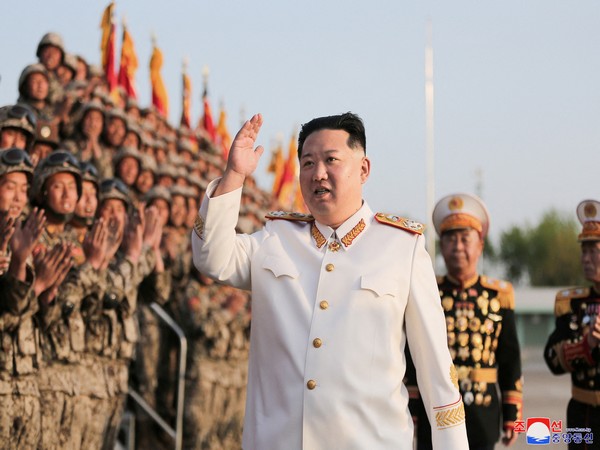North Korean leader Kim Jong Un on Monday called for the constitution to be changed to ensure that South Korea is seen as the “primary foe” and warned his country did not intend to avoid war should it happen.
Addressing the Supreme People’s Assembly, North Korea’s rubber-stamp parliament, Kim declared that unification with the South was no longer possible, and accused Seoul of seeking regime collapse and unification by absorption.
Kim said the constitution should be amended to educate North Koreans that South Korea is a “primary foe and invariable principal enemy” and define the North’s territory as separate from the South.
“We don’t want war but we have no intention of avoiding it,” Kim was quoted as saying.
In the event of a conflict, Kim urged North Korea to plan for the “complete occupation, subjugation, and reclamation” of South Korea. He also advocated for the abandonment of terms like “fellow countrymen” for South Koreans and called for the severance of all inter-Korean communication, along with the destruction of a reunification monument in Pyongyang.
Additionally, three organizations dealing with unification and inter-Korean tourism are slated for closure, according to state media.
South Korean President Yoon Suk Yeol, in a cabinet meeting, criticized Pyongyang for adopting an “anti-national” stance by labeling the South as a hostile country.
Kim’s push for constitutional changes coincides with heightened tensions in the Korean Peninsula, marked by missile tests and Pyongyang’s efforts to depart from decades-long policies in its relationship with the South.
Analysts have said North Korea’s foreign ministry could take over relations with Seoul, and potentially help justify the use of nuclear weapons against the South in a future war.
Ruediger Frank, a professor of East Asian Economy and Society at the University of Vienna, said Kim’s new policies “will trigger a cascade of changes across inter-Korean relations and regional dynamics”.
“This opens the door to regular interstate relations, including both diplomatic normalisation and potential conflict,” Frank wrote in the report for the U.S.-based 38 North project.
(Reuters)














